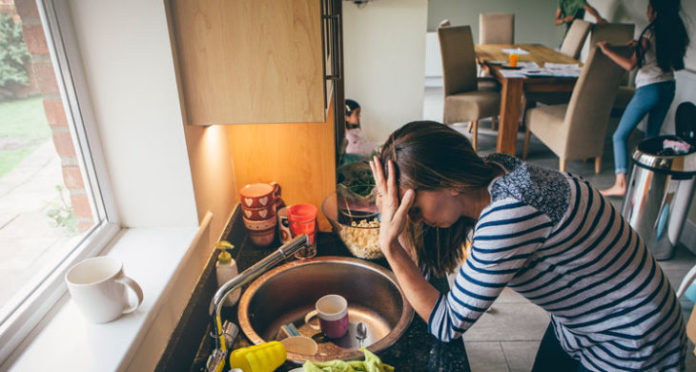As a busy mom, getting restful 8-hour sleep might sound like a fantasy to you. And we get your pain.
Studies report that 46 percent of moms sleep less than six hours. Sometimes, it’s because the kids won’t let them sleep. At other times, they’ve pending work to complete, and are too overwhelmed and stressed to rest.
If any of these scenarios ring any bells, we’re glad you’re here. Because in this article, we’ve listed 6 ideas to help you get enough sleep.
- Sleep When Your Child Sleeps
It’s common for most moms to schedule their work-related or personal activities after their child sleeps. Some categorize this as me-time, and others simply find it easier to focus when their kids are not around.
Although it is an effective way of dealing with me-time and the pending work that you’ve missed, it involves compromising on sleep. This is why it’s an unhealthy habit in the long run.
So, try to sleep as soon as your child sleeps. Whether it’s a daytime nap or bedtime, close your eyes and drift off to sleep. It may be difficult in the first few days if you’re not habitual. But eventually, you’ll develop a habit and find yourself well-rested.
It’s also important to remember that a consistent lack of sleep will land you in an irritable mood at all times and rob you of your productivity. This will impact your work negatively, so ignoring your sleep for work is counter-productive.
- Limit Screen Time
Blue rays from digital screens can mess up your sleep-wake cycles. They suppress melatonin levels in your body and delay sleepiness. For that reason, we recommend limiting your screen time.
Avoid using your phone, laptop, or any other device at least 2-3 hours before bedtime. If that’s not possible, aim to quit screen time at least an hour before sleep. And know that if you fail to limit your screen time, you’ll be signing up for some serious health issues in the long run. Chronic sleep deprivation has been linked to various diseases, such as hypertension.
- Clear Your Mind Before Sleeping
You’ve got too much on your mind and it’s difficult to simply shut it all off and sleep. We understand that.
So we recommend sorting out your thoughts at the end of the day to tackle feelings of stress. Consider journaling or a freestyle writing exercise, where you write down what’s on your mind.
This is also a good way to practice gratitude, which is another way to reduce stress. List down at least three good things that you experienced during the day. And be thankful for them!
You can also prepare a to-do list for the next day or listen to relaxing music to calm yourself down.
- Practice Breathing Meditation
Breathing meditation, also known as mindful breathing, is an excellent sleeping habit for busy individuals. Along with calming your nerves, it helps boost immunity and enhances focus. It might also help with sleeping issues like chronic insomnia and sleep apnea.
In case you already have sleep apnea, you might want to consider using a CPAP machine (CPAP Direct has a good collection). It treats sleep apnea by delivering consistent air pressure to your system and preventing the collapse of your airways. Once you find yourself returning to relatively normal sleeping patterns, you can switch to breathing exercises to help yourself.
Check out this guide about sleeping meditation to pick a suitable breathing exercise for yourself.
- Consume Healthy Food
Your diet affects your sleeping patterns. If you consume a lot of sugar and saturated fats throughout the day, you’re likely to get a light, less-restorative sleep. Similarly, excessive consumption of caffeine-rich foods may block the production of sleep-inducing chemicals in the body.
These harmful effects of unhealthy foodstuffs, combined with your parenting stress, may completely deprive you of sleep.
So it’s important to eat a healthy diet, particularly before bedtime. For example, avoiding spicy and acidic food three hours before your bedtime can reduce the risk of heartburn or indigestion. Similarly, consuming tart cherries before bedtime can boost the production of melatonin and enhance sleep. A bowl of oatmeal or whole-wheat toast may also help.
- Create A Sleep-Friendly Environment
An appropriate bedroom environment can help you fall asleep faster. You can create a good sleeping environment by eliminating all sources of noise from your bedroom. Switch off the TV and shut the windows. If there’s a noise you can’t help, try to muffle it with low TV noise or fan so it doesn’t bother you.
Next, turn off any bright light. Instead, switch on your table lamp and enjoy a dimly lit environment. Following this, set up an optimal room temperature, preferably 70° Fahrenheit. Lastly, ensure that your mattress and pillow are soft and supportive. Some people find it relaxing to slip under a duvet, so you might want to consider it.
















